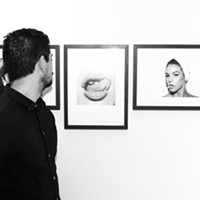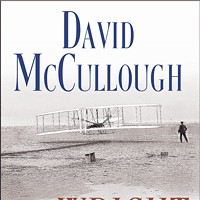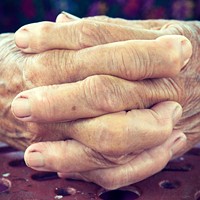Page 2 of 3
"At the time [of the arrest], I was really ready to change -- the way I was living wasn't fun, I didn't like the person I was, but I realized that maybe I could become someone that I liked." It was if she'd been waiting for someone to temporarily set her aside, so she could get her act together. And so, as she headed to prison in her early 20s, Pat decided she was going to become a different kind of person.
Prison life offered MacEnulty college courses, as well as the chance to explore a dream she'd had since age 12: to be a writer. She had been writing off and on during the drug years, and once in prison, she dove into the craft headfirst. "I also got involved in some self-help things, positive thinking, and helping other people," she relates, "and oddly enough, I got some respect there -- for once, I was actually a kind of role model rather than just following along. So that's where I started being who I really am ... I learned that if you took the energy you used to get drugs and applied it to something positive, it made all the difference in life. Even today, I'll think about taking that energy and that ability to obsess about something, and use it constructively, just go for it." She smiles and continues, "That's probably why I've churned out six books, 'cause I'm kind of an obsessive about it."
While in prison, she also had a deep spiritual experience while she and fellow inmates attended services at an African-American church. "I realized there's something greater than just this frightened, angry little ego of mine -- there's something greater and much more beautiful and something of it is inside me. It may not always be accessible, but just knowing that it's there changes everything. And that's been a basis of how I see things since then."
Once out of prison, MacEnulty completed her B.A. work at the University of Florida, where she learned much from one of her teachers, the writer Harry Crews. The legendary Southern author, whose gritty books pull no punches in their evocation of real life in all its joy and pain, encouraged Pat to use her hard experiences in her art. After getting her B.A., she moved to Miami, and wrote for television, which is where she met her future husband, a video engineer. Still wanting to pursue the literary life, she moved to Tallahassee and got her masters degree from Florida State, after which she headed to Ft. Lauderdale, where she worked for the Sun-Sentinel for a couple of years. She got pregnant in 1990, "and moved back to Tallahassee to get my doctorate, because that seemed a better fit for motherhood than freelancing. My husband joined me there and we went on to raise our child." It took almost five years to get the doctorate while being a mom and writing short stories. During that period, she began working on Sweet Fire, taking Harry Crews' advice to use her own history and experience to populate her novel.
After being turned down by American publishers, Sweet Fire found fans in the British publishing industry, and the tale of 19-year-old junkie Trish, who "fell in love with heroin, which had made life both easier and harder," was published by Serpent's Tail in London. Reviews in the U.K. were terrific. MacEnulty was compared to authors Lorrie Moore or Jane Hamilton, and critics marveled that she could create a likeable, engaging character who is also a drug addict, and lace the story with intelligence and humor.
Intelligence and humor are key elements in MacEnulty's fiction, from Sweet Fire to her current novel, Picara. They sharpen the impact of her straightforward, often cinematic style, and allow for quick, piercing pictures of complex situations and emotions. In some ways, too, Harry Crews is still at work, particularly in the way MacEnulty tackles hard, tricky situations head-on with smarts and humor -- as well as in her knack for bringing "ordinary people" to full, three-dimensional life, making them as interesting as most ordinary people really are once you get to know them.
In many ways, MacEnulty's own experiences are reflected in her view of writing itself. "I believe writing can be transformative," she says. "You can take experiences -- your own or someone else's -- and by writing about them in an artistic way, turn them into art, and make them something better, or something healing, or transformative; and that can work for both the writer and the reader ... I know that after reading some books, I've been changed inside, I've gotten a greater awareness out of them. I think that's what I'm trying to do, trying to open things in myself by writing, and I hope that happens to readers."
Latest in Feature
More by John Grooms
Calendar
-

NEW WINDOW GALLERY-Pat Rhea-ACRYLIC PAINTINGS-April 05-30 2024 VALDESE, NC 28690 @ New Window Gallery/Play It Again Records
- Through April 30, 12 p.m.
-
Derek Hough - Symphony Of Dance @ Ovens Auditorium
-

"Blood Residue Analysis of Paleoamerican Stone Tools in the Carolinas" @ Native American Studies Center
- Fri., April 26, 12-1 p.m.
-

ARTS RENAISSANCE, a GALA supporting the ARTS in South Carolina @ the Columbia Museum of ART
-
 The Piano Guys @ Ovens Auditorium
The Piano Guys @ Ovens Auditorium














